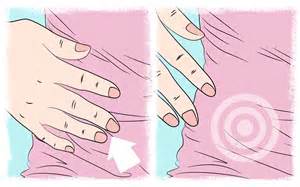 Complaints of a pain in the side will almost always bring the suggestion, “Maybe it’s appendicitis!” It’s true that pain is one of the symptoms, but what is appendicitis, and how do you know if you really might be having an attack? If you are suffering from appendicitis, what is the treatment?
Complaints of a pain in the side will almost always bring the suggestion, “Maybe it’s appendicitis!” It’s true that pain is one of the symptoms, but what is appendicitis, and how do you know if you really might be having an attack? If you are suffering from appendicitis, what is the treatment?
Let’s start by looking at what the organ known as the appendix does. The human appendix is a finger-shaped pouch that projects from the colon on the lower right side of the abdomen. Previously thought to have no redeeming functions, new research shows that the appendix seems to play a part in immune functions and digestion, and it is especially important during fetal development through the third decade of life.
When this small organ becomes inflamed and filled with pus, it is called appendicitis. This is thought to be caused by infection that finds its way into the organ or perhaps from a blockage containing bacteria that causes infection.
Regardless of the cause, appendicitis usually presents itself as pain near the navel, moving to the lower right side and becoming severe. The pain is often made worse by coughing or other body-jarring movements. Sometimes accompanied by nausea and vomiting, fever, loss of appetite, constipation or diarrhea, and abdominal bloating, appendicitis can be quite painful and serious. If not treated promptly, the appendix can even rupture, leading to serious issues.
Typically, surgery to remove the appendix (appendectomy) along with antibiotics for infection is the preferred treatment for appendicitis. Appendectomy can be performed as open surgery requiring a relatively large incision or laparoscopically with a few very small abdominal incisions. In general, laparoscopic surgery takes less recovery time with less pain and scarring, but each case is unique.
Schedule an appointment with Dr. Johnson to discuss surgical options.
Read more about appendicitis at: http://www.appendicitissymptoms.org/diagnosis-and-treatment


